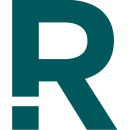Spoiler alert: The future of work is remote.
This is according to four New York tech leaders who told Built In about the workplace trends in 2021 that they predict will carry over into the new year. It’s not hard to see why all four were in agreement: The pandemic is still with us and remote work is safer than gathering everyone in the office. That, and people have quickly grown accustomed to working where and when they want. While predicting that remote work is the future of work is easy, it’s much more difficult to forecast how companies will adapt to the “new normal” becoming permanent.
These New York tech leaders offer a high-level overview of the future of work in a world where the ability to log in from anywhere is the expectation, not the exception. Some companies, like Ribbon Health, have discovered that the office is still the best place for teams to collaborate and are focused on finding ways to get everyone back at their desks. Others, like HUMAN, have taken the opposite approach and are set on enabling employees to stay connected and work successfully from wherever they choose.
Regardless of the approach, the end goal is about setting employees up for success. Here’s how these NYC four companies plan to do that in 2022.
As a company that connects highly-skilled freelancers and consultants on-demand, Worksome has been a champion of distributed workforces and remote work since before the pandemic. Morten Bruun, managing director for North America, told Built In that the “new normal” of flexible working norms is here to stay. However, Bruun said that doesn’t mean the office will become extinct anytime soon.
What is one key work trend that emerged this year that you predict will continue to gain momentum in the year ahead, and why?
Paradoxically, the key learning for me is that there is no one trend. If anything, what we’re really seeing is countless flexible and hyper-personalized ways of working. I see so many companies trying to come up with an exact number of days that their teams need to be in the office or deciding that no one should ever come to the office at all. I fundamentally don’t believe in any of these approaches. We would much rather give everyone the freedom to decide when, where, how and what they work on rather than sitting in an ivory tower and trying to come up with a single way that teams should work.
It’s easy to think that the shift was just a momentary impact of Covid-19, but now most people are realizing that this is in fact the new normal — and a much better normal. Instead of being boxed into an eight-hour workday, work has become much more fluid for employees working from home, who have seen how a more flexible work-life balance helps them achieve their personal and professional goals.
I think the next year is going to be game-changing for how we think about office space.”
How has Worksome adapted over time to the workplace shifts brought on by the pandemic? What permanent impact has that had on the way your team works?
Our first focus was really to find a way to make hybrid teams work well. Lately, we’ve doubled down on using the office for what it’s best for: socializing, building culture and facilitating collaboration. Specifically, we’ve created a room for collaboration, redesigned the office and introduced a number of social activities, such as “TGIF,” family-style lunch and “Worksome Wednesdays.” There’s no doubt that working from home is much better if you need to focus and deep-dive into a topic. But we’ve found that the office is a great place for collaboration and for connecting with the team, so we want to optimize the office toward that specific goal.
As you head into the new year, what do you envision for the future of work? And how are you bringing that to life within Worksome?
We’re in the middle of what will likely be the biggest change to work since the industrial revolution. It is becoming clear that the most successful startups will succeed by embracing this shift as it enables them to work with the best talent no matter where they are based. Over the past year, we’ve paid a lot of attention to how we can improve the remote experience, and I think we’ve come a really long way. For next year, we’ll be focusing a lot on how we can make our office the best office experience in the world.
Historically, most companies have been focused on optimizing the capacity in the office so everyone can have a dedicated seat, which is good if you want to fit in a lot of people but really terrible if you want to foster collaboration and creative thinking. The last year has been game-changing for remote work, but I think the next year is going to be game-changing for how we think about office space.
HUMAN is a cybersecurity company whose technology is designed to protect against bot attacks. Given its name, you’d expect HUMAN CEO and co-founder Tamer Hassan to be people-focused, and you’d be right. Hassan said his company has implemented measures to protect against burnout and that when it comes to the future, his focus is less on finding a way to get everyone back into the office and more on how to enable people to work and connect with one another from wherever they are.
What is one key work trend that emerged this year that you predict will continue to gain momentum in the year ahead, and why?
We have a “work from anywhere, anytime” mindset that goes far beyond just letting employees work from home. It’s about how we foster a sense of community and care from home. It’s giving employees opportunities to connect, both physically and virtually, and opportunities to unplug. At HUMAN, we embrace “work from anywhere, anytime” by providing flexibility. Go pick up your kids from school or visit your family. We’ll be here when you get back. An office doesn’t need to be a desk and a chair: Sometimes it’s a porch or a fire escape. Our humans have the option to go into any of our global offices but are not required to.
To stay connected, we have implemented internal virtual events to bring humans together, such as cupcake decorating, candle making, and more. It allows us to think creatively, use our hands and chat with each other over Zoom. We’re looking forward to welcoming more of these activities in 2022, especially in parts of the world where we can get together in person.
If an employee is successful from wherever they are, there’s no need to force a set office schedule for them.”
How has HUMAN adapted over time to the workplace shifts brought on by the pandemic? What permanent impact has that had on the way your team works?
I’m in awe at how our humans have taken all the changes of the past year and a half. 2021 turned out to be one of the best years in our company’s history and it’s because of the hard work of our humans. But with hard work comes the big issue among companies in 2021: burnout. Sitting in front of our computers for hours everyday isn’t good for us, and with the weight of the pandemic on our shoulders, it’s no wonder that everyone is looking for a break.
To address the issue of burnout, we’ve implemented what we call “human days,” which are company-wide PTO days. We encourage our humans to do things that make them feel human again, whether that’s going for a hike, seeing friends, going on a road trip — the list goes on. The only requirement is to not worry about work. Everyone shares what they did with their time when they get back. It’s a reminder that we all deserve breaks and those breaks can re-energize us.
As you head into the new year, what do you envision for the future of work? And how are you bringing that to life within HUMAN?
Let’s suspend the term “remote work” for a moment. There is no such thing as “remote” work when there is no such thing as centralized work in an office. The new focus is on how we collaborate over distances. It doesn’t matter if you’re in an office, at home, in a different country or, if you’re lucky, on a beach. What matters is getting good at connecting. In modern work, the new office is wherever the human is.
With this in mind, we’re committed to building strong relationship-based connections within our teams. Trust is the foundation of that relationship and when you can trust your team, there’s a sense of psychological safety. We’re doing this by focusing on outcomes, not activities. If an employee is successful from wherever they are, there’s no need to force a set office schedule for them. Humans can make their own decisions of what’s best for them, and the proof is in the progress.
Many companies quickly adopted remote collaboration and communication tools for the first time — or doubled down on them — at the start of the pandemic. Cryptocurrency exchange and investment platform Amun 21Shares didn’t face that challenge, with Garrison Gibbons, VP of people, noting that 90 percent of the company started during the pandemic. Amun 21Shares has since reopened its offices, and going forward, Gibbons said the company’s focus is on keeping its finger on the pulse of the evolving definition of what it means to be connected.
What is one key work trend that emerged this year that you predict will continue to gain momentum in the year ahead, and why?
The keyword is “flexibility.” This year, we learned that the rigid corporate work structure was not necessary to increase employee productivity and engagement. In fact, under flexible work environments, we saw both increase exponentially. Flexible work structures will continue to gain momentum and will be a must-have for talent as they consider new employers in the quarters and years ahead. As the world becomes more and more always on, and the line between work and life becomes more blurred, flexibility at work will only increase. Now that flexible work has proven to be successful, there is no way employees won’t fight for even more flexible work setups in the future, and the data is on their side.
Now that flexible work has proven to be successful, there is no way employees won’t fight for even more flexible setups in the future.”
How has Amun 21Shares adapted over time to the workplace shifts brought on by the pandemic? What permanent impact has that had on the way your team works?
We are in a unique position as nearly 90 percent of our company started during the pandemic. In many ways, everyone adapted not because of the challenges of the pandemic but because our company was experiencing immense growth while scaling during it. Our team had to utilize technology to foster connection, like Slack, Donut, Confluence, Notion and Zoom, which have since become embedded in our culture. This led our distributed team to feel professionally and personally connected to one another despite never having met.
Now, our offices have reopened for people who live in New York and Zurich, and we held a company offsite where our entire team had the chance to meet in real life. But, the connection was already there before any of this happened, and that is because of the technology we established remotely. Today, we have new joiners starting every week and they are fitting right in whether they have met people in person or not. That is because of the culture we have built off of a technology stack that inspires collaboration regardless of location.
As you head into the new year, what do you envision for the future of work? And how are you bringing that to life within your company?
As a cryptocurrency company, we are constantly thinking of the future. But more so, we are consistently thinking of the systems and beliefs held by society and pondering what would happen if those were challenged. For us, the pandemic offered the opportunity to challenge the status quo. We asked ourselves: Why do I have to work 9 to 5? Why do I have to work from an office five days a week? Why do I have to put in a formal request to work remotely? Many say the future of work is now, but we believe this is just the beginning of the evolution of work.
We value connection above all, but we realize that connection can happen in person, through a screen or in writing. We also recognize that connection means different things to different people. That is why we have established a hybrid model for those who work from a city where we have an office. These employees work from the office two to three days a week and then work the rest of the week from wherever they want. We also have remote employees who work from anywhere, anytime. We believe this mixed model fosters personalized connection based on team demands and desires and employee expectations and preferences.
As the CEO of a healthtech company, Nate Maslak has seen firsthand how seriously other companies have begun to take the mental and physical health of their employees during the pandemic. Maslak predicts this will continue into 2022, with employers focusing more energy on ensuring employees have access to quality health care. As for Ribbon Health itself, Maslak said the pandemic has spurred his team to codify their company’s norms and to reevaluate how important in-person interactions really are.
What is one key work trend that emerged this year that you predict will continue to gain momentum in the year ahead, and why?
The Covid-19 pandemic resulted in a rapid shift to remote-first work, positively influencing companies to enact flexible working policies and norms. We have all been pushed to recognize that individuals and teams do their best work when they simultaneously prioritize their health and mental wellbeing. At Ribbon Health, our vision is to power every care decision to be convenient, cost-effective and high-quality, which ultimately comes down to empowering people to live their healthiest lives. The pandemic has only further highlighted the gaps in our health care system and the opportunities for employers and companies to make a difference in employee health.
This means building companies like Ribbon that seek to simplify health care or focusing more energy on employee resources that help them get the best possible care. I believe that the necessary trend of seeking to meet the challenges of our health care system will continue well beyond 2021. We believe in work-life integration, meaning Ribbon should work for us versus us working for Ribbon.
The pandemic has only further highlighted the opportunities for employers and companies to make a difference in employee health.”
How has Ribbon Health adapted over time to the workplace shifts brought on by the pandemic? What permanent impact has that had on the way your team works?
“Put your team first” is a core value at Ribbon Health, and a top priority for us was codifying company norms and implementing frameworks to allow teammates to continue creating bonds and generating impact in a remote and hybrid work environment. For example, every person joining Ribbon is asked to create a document with their “working norms,” their motivators, stressors, lifestyle and anything else they would like their teammates to know about them. This practice has helped us scale and create a culture of openness, understanding and empathy during what was, and still is, a challenging time.
While we’ve done a tremendous job of building effective, happy and fulfilled teams remotely, we also value the spontaneity, creativity and community that come with in-person interaction. In addition, we believe in the opportunity it provides for new hires and tenured team members to get to know each other and collaborate in a more hands-on way. For this reason, we are focused on cultivating a New York office environment at this critical phase of Ribbon’s growth that supports the needs of each individual and encourages in-office interactions instead of fully remote work.
As you head into the new year, what do you envision for the future of work? And how are you bringing that to life within Ribbon Health?
My teammates and I always remind each other that we must question and rethink everything at our company except our mission, vision and values. The future of work at Ribbon is continuing to use the “habits of excellence” — again, a value of ours — that we gained this past year while also breaking what isn’t working to enable us to scale at a rapid pace. An example of what works very well is our weekly “all paws” meeting every Monday morning.
During this meeting, we openly talk about how we lived our values and where we can do better, shout out teammates who exemplified those values the week prior and align on our shared priorities for the coming week. Even though we may not all be sitting together physically, this meeting allows us to make sure we are all marching toward the essential problems of that week and being extremely transparent on what’s going well and what needs improvement. And of course, we plan to continue bringing our culture to life by hosting fun team events, like our most recent “Ribbonsgiving,” in a safe and comfortable environment.












